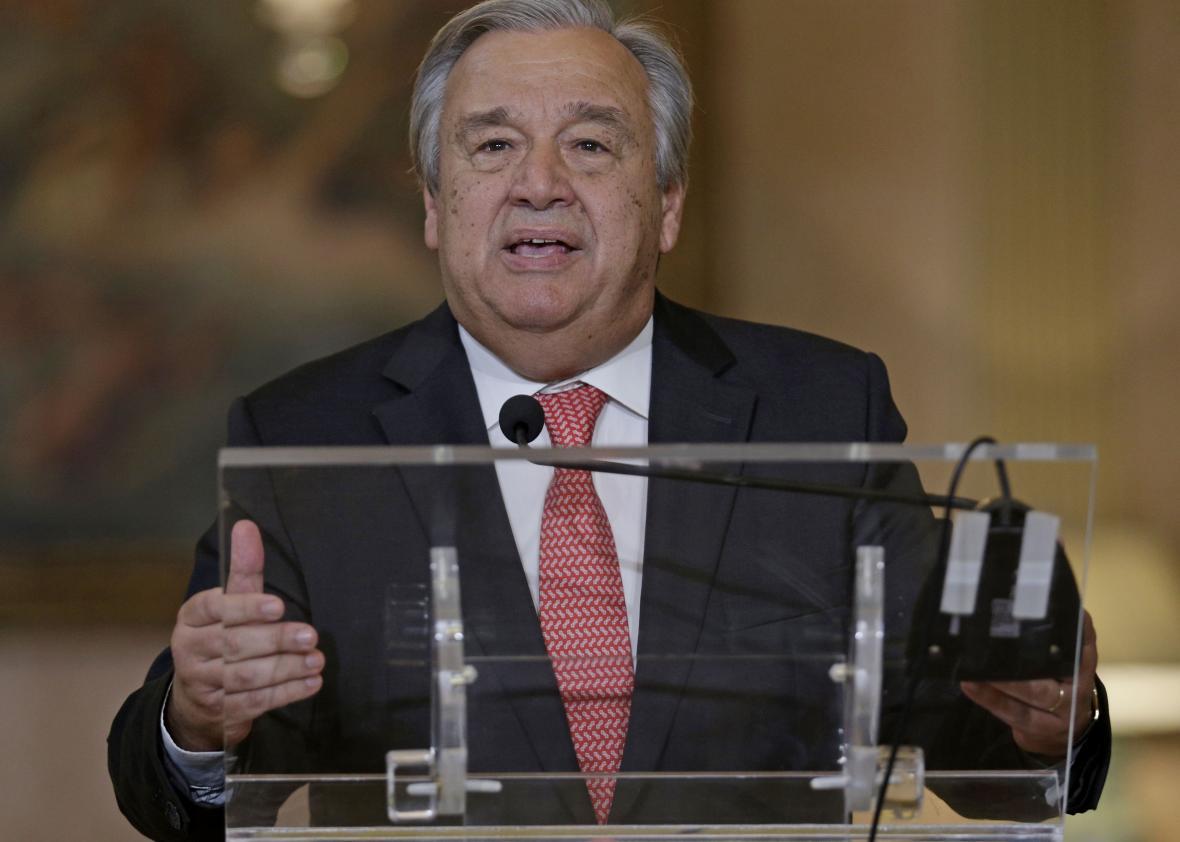António Guterres, who faces one final formality before he is named as the next secretary-general of the United Nations, is by all accounts a fine candidate for the job. A former prime minister of Portugal, he served as U.N. High Commissioner for Refugees and is a diplomat’s diplomat: U.S. ambassador to the United Nations Samantha Power praised him, declaring that he has “experience, vision, and versatility across a range of areas.” What Guterres is not is a woman—and his selection by the U.N. Security Council on Thursday represents the failure of a high-profile effort to elect a woman to the job.
The United Nations has had eight male leaders in its 70-year history, and even incumbent Secretary-General Ban Ki-Moon, whose term expires at the end of the year, said that it was “high time” for a woman to be the ninth. Seven of the 13 candidates for the job were female, many of them, according to the BBC, “arguably even more experienced than Mr. Guterres.” They included a former prime minister of New Zealand, the director-general of UNESCO, foreign ministers, and high-level U.N. officials.
In the end, though, men took the top three spots in the Security Council voting, with Guterres emerging as the clear winner. Jean Krasno, a lecturer on international affairs at the City College of New York and chair of the Campaign to Elect a Woman U.N. Secretary-General, told Foreign Policy, “Fourteen men on the Security Council, and one woman, Samantha Power, just couldn’t envision a woman at the top.” Krasno’s group released a no-holds-barred statement, calling Guterres’ election “a disaster for equal rights and gender equality” and “an outrage.”
Although institutional sexism is rarely surprising, some observers thought the push for a female secretary-general might succeed this time around, if only because of the “glass cliff” theory. As the New York Times explained it, this theory holds that “women are often placed in positions of power when the situation is dire, men are uninterested and the likelihood of success is low.” That sounds like a pretty accurate description of the situation the United Nations is currently facing—with conflicts from Syria to North Korea, a resurgent East-West divide, and when the U.N. peacekeeping force has been “sullied by repeated accusations of sexual abuse.”
Ultimately, though, the push for a female secretary-general seems to have had little effect on the people who mattered most—the members of the Security Council. Christian Wenaweser, Liechtenstein’s U.N. ambassador, told Foreign Policy, “It’s fair to say the argument ‘we need a woman’ never gained traction” there. “I think they just didn’t care.”
